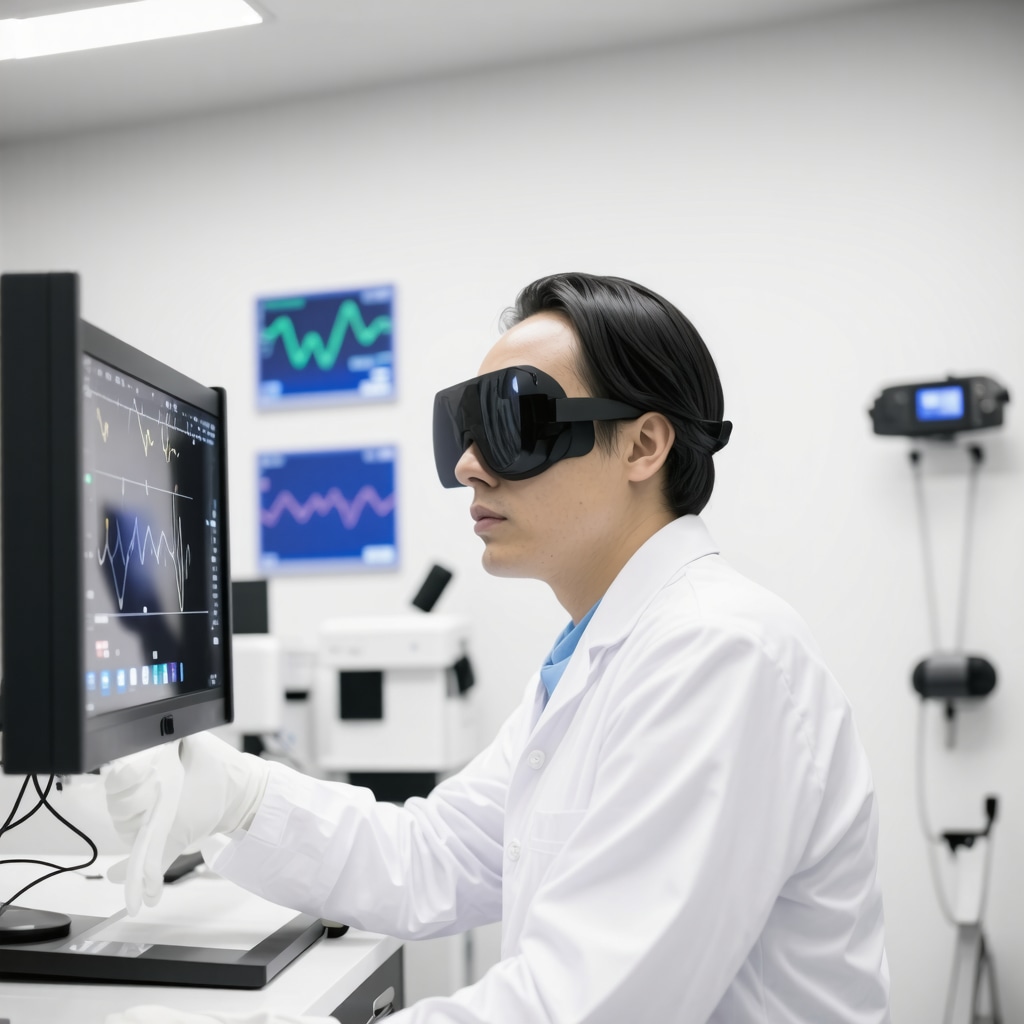Why Let the Pros Take the Lead? The Rise of Doctor-Led Fat Loss Plans
Ever feel like navigating the maze of weight loss options is as confusing as deciphering ancient hieroglyphs? Well, you’re not alone. With a surge in personalized, doctor-led fat loss plans, 2025 promises a smarter, safer route to shedding those stubborn pounds. Imagine having a seasoned expert by your side, guiding you through tailored strategies that actually work — that’s the magic of medical oversight in weight management.
More Than Just a Fancy Label: The Real Benefits of Medical Supervision
Is Your Weight Loss Journey Better with a Doctor in Charge?
Absolutely. Doctor-led plans aren’t just about prescribing pills; they encompass comprehensive assessments, nutritional guidance, behavioral coaching, and close monitoring. This holistic approach helps prevent common pitfalls like yo-yo dieting, ensures safety, and maximizes results. For instance, studies have shown that patients working with healthcare professionals tend to stick with their programs longer and achieve faster, more sustainable outcomes (source).
Personalized Plans: Because One Size Never Fits All
One of the key advantages of doctor-led programs is their customization. Unlike generic diet fads, these plans consider your unique medical history, metabolic profile, and lifestyle. Ever wondered if your genetic makeup influences your weight loss success? Modern medicine is peeling back those layers, offering tailored interventions that boost efficacy and safety.
Safety First: Navigating the Landscape of Prescription Weight Loss Drugs
In 2025, prescription medications like GLP-1 receptor agonists (semaglutide, tirzepatide) are gaining ground, but only when prescribed and monitored by healthcare professionals. These drugs have shown remarkable results, yet they require precise dosing and ongoing assessment to avoid side effects. Want to explore whether you qualify for these treatments? Check out this step-by-step guide.
Is Telemedicine the Future of Weight Loss?
The answer is a resounding yes. Telemedicine platforms now connect you with experts seamlessly, making doctor-led weight management more accessible than ever. No more waiting rooms or inconvenient appointments—just expert advice at your fingertips. It’s a game-changer, especially for those juggling busy schedules or living in remote areas.
If you’re curious about the latest innovations, don’t miss the comprehensive guide to weight loss injectables in 2025.
Shape Your Future: Take Action Today
Are you ready to embrace a smarter, safer path to your weight loss goals? Chat with a healthcare provider about personalized, doctor-led plans. Remember, the most effective journeys are those guided by expertise and tailored to your needs. Have thoughts or experiences with doctor-led weight loss? Share your story in the comments below — let’s learn from each other!
The Nuanced Edge of Medical Supervision in Weight Management
As we delve deeper into 2025, it’s clear that doctor-led weight loss plans are evolving beyond mere prescriptions. They now encompass advanced diagnostics, personalized medication regimens, and integrated behavioral support. This comprehensive approach is designed not just for short-term weight loss but for sustainable health improvements. For example, cutting-edge genetic testing can identify metabolic tendencies, allowing physicians to tailor interventions more precisely (source).
What Are the Hidden Benefits of Medical Oversight That You Might Be Missing?
Think beyond the obvious. Medical supervision provides a safety net that catches potential side effects early, adjusts treatments dynamically, and offers psychological support to combat emotional eating or motivational lapses. Such holistic management can dramatically improve success rates compared to unsupervised dieting. Moreover, the integration of technology, like wearable health monitors and telehealth consultations, makes ongoing supervision more accessible and less intrusive (source).
Innovative Medications: The New Frontier in Safe Weight Loss
In 2025, the landscape of prescription weight loss drugs is more sophisticated. Medications like semaglutide and tirzepatide are now prescribed with precision dosing and real-time monitoring, reducing risks associated with off-label use. Recent studies underscore their effectiveness when managed properly by healthcare professionals, emphasizing the importance of expert oversight (source).
Are you aware of the latest developments in these treatments? Exploring trusted sources or consulting with a medical expert can unlock tailored options suitable for your unique health profile.
How Can Telemedicine Revolutionize Your Weight Loss Journey?
Telemedicine is breaking down barriers, offering a seamless connection to weight management specialists regardless of location. Virtual consultations facilitate continuous monitoring, medication adjustments, and behavioral coaching—making the entire process more adaptable and responsive. This digital shift is especially beneficial for busy professionals or those in rural areas, democratizing access to expert care (source).
Would you consider a virtual program to jumpstart or sustain your weight loss? The convenience and personalized attention make it a compelling option.
Join the Conversation: Your Experience Matters
Have you tried a doctor-led weight loss plan or used telemedicine for management? Sharing your story can inspire others and shed light on practical challenges and successes. Remember, informed choices stem from real-world insights. For more detailed guidance, visit this resource.
The Cutting-Edge of Personalized Medicine: How Advanced Diagnostics Elevate Weight Loss Strategies
In 2025, the frontier of weight management is being reshaped by sophisticated diagnostic tools that enable a truly personalized approach. Beyond traditional medical histories, cutting-edge genetic testing and metabolic profiling uncover unique biological factors influencing an individual’s weight and response to interventions. For example, multi-omics analysis—integrating genomics, proteomics, and metabolomics—provides a comprehensive biological snapshot that guides targeted therapies, optimizing efficacy and safety. According to a recent study published in Nature Medicine, such integrative diagnostics can predict individual responses to specific diets and medications with remarkable accuracy (source).
What Are the Practical Implications of Integrative Diagnostics in Weight Management?
Practically, these diagnostics facilitate a shift from one-size-fits-all plans to bespoke regimens. For instance, knowing your genetic predisposition to insulin resistance or fat storage can determine whether you benefit most from certain pharmacological agents or specific nutritional modifications. This precision medicine approach minimizes trial-and-error, reduces adverse effects, and accelerates progress toward your goals.
Holistic Monitoring: The Role of Wearable Technology and AI in Sustaining Weight Loss
Technological integration, especially wearable devices combined with artificial intelligence (AI), has revolutionized ongoing supervision. Devices now continuously track vital signs, activity levels, sleep quality, and even biochemical markers through minimally invasive sensors. AI algorithms analyze this influx of data in real-time, alerting both users and clinicians to potential issues or plateaus before they become setbacks. For example, a recent breakthrough reported in The Lancet Digital Health demonstrated how AI-driven insights led to 40% higher maintenance of weight loss over a year compared to traditional monitoring (source).
Imagine a system that adapts your plan dynamically—adjusting medication doses, recommending behavioral tweaks, or flagging potential nutritional deficiencies—all guided by a personalized data ecosystem. This level of oversight not only enhances safety but also empowers you with actionable insights to stay on track.
How Might This Data-Driven Approach Transform Patient-Provider Interactions?
It fosters a proactive rather than reactive paradigm. Instead of waiting for scheduled appointments, your healthcare team can intervene immediately, making adjustments based on real-time data. This fluid communication ensures that weight loss efforts are both safe and effective, preventing complications and optimizing results.

The Ethical and Practical Considerations of Advanced Diagnostics and Monitoring
While these innovations promise unprecedented precision, they also raise questions about data privacy, consent, and equitable access. Ensuring that sensitive biological and behavioral data are securely stored and ethically used is paramount. Moreover, clinicians must be trained to interpret complex multi-dimensional data accurately, translating insights into meaningful interventions.
In addition, the cost-effectiveness of such personalized care models is under active investigation. As technology becomes more accessible and affordable, integrating these advanced diagnostics into mainstream weight management programs will become a tangible reality, ultimately democratizing high-quality, tailored care.
Are You Ready to Embrace the Future of Tailored Weight Loss?
If these emerging strategies resonate with your desire for a safe, effective, and personalized approach, speaking with a healthcare professional specialized in precision medicine could be your next step. The future of weight management isn’t just about losing pounds—it’s about understanding your unique biology and leveraging technology to sustain healthful habits for life.
How Can Cutting-Edge Diagnostics Personalize Your Weight Loss Journey?
In 2025, the integration of advanced diagnostics like multi-omics analysis is revolutionizing weight management. These tools analyze genomics, proteomics, and metabolomics to uncover individual biological factors affecting weight and response to treatments. This personalized insight allows practitioners to craft interventions that are more effective and safer, moving away from generic plans. For example, understanding your genetic predisposition to insulin resistance can help determine whether a medication like semaglutide or tirzepatide will work best for you (source).
What Are the Practical Benefits of Precision Diagnostics in Weight Loss?
These diagnostics enable a shift to bespoke regimens—tailored nutritional plans, targeted pharmacological interventions, and behavioral strategies—reducing the trial-and-error approach that often hampers progress. They help identify underlying metabolic issues, such as fat storage tendencies or insulin sensitivity, guiding clinicians to optimize treatment plans for sustainable results.
How Does Wearable Technology and AI Enhance Long-Term Success?
Wearable devices now continuously monitor vital signs, activity, sleep, and biochemical markers, providing real-time data. AI algorithms analyze this influx, offering personalized feedback and early detection of plateaus or adverse reactions. This dynamic oversight allows for timely adjustments, increasing the likelihood of lasting weight loss. For instance, AI-driven systems can modify medication doses or suggest behavioral tweaks based on your daily metrics (source).

How Might This Data-Driven Approach Transform Patient-Provider Interactions?
Proactive communication becomes the norm, with clinicians intervening before issues escalate. This fosters a partnership where treatment is continuously optimized, enhancing safety and efficacy. Such integration also empowers patients, giving them actionable insights and greater control over their health journey.
What Are the Ethical Considerations Surrounding These Innovations?
While personalized diagnostics and AI-driven monitoring promise unprecedented precision, they raise concerns about data privacy, consent, and equitable access. Ensuring secure handling of sensitive biological and behavioral data is paramount. Additionally, training clinicians to interpret complex multi-dimensional data is essential for translating insights into meaningful care. As technology becomes more affordable and widespread, integrating these tools into mainstream weight management will democratize access to high-quality, tailored treatments (privacy policy).
Are You Ready to Embrace the Future of Tailored Weight Loss?
If personalized medicine and innovative diagnostics resonate with your desire for a safe, effective approach, consulting a healthcare professional specializing in precision weight management could be your next step. The future isn’t just about losing pounds—it’s about understanding your unique biology and harnessing technology to sustain lifelong health.
Expert Insights & Advanced Considerations
1. Precision Medicine is Revolutionizing Weight Management
Advanced diagnostics such as multi-omics analysis enable tailored interventions that significantly improve outcomes by understanding individual biological responses to diet and medication, making personalized plans more effective and safer.
2. Integrating Wearable Tech and AI Enhances Long-Term Success
Continuous monitoring through wearable devices combined with AI analysis allows for real-time adjustments, early detection of plateaus, and proactive management, thereby increasing the sustainability of weight loss efforts.
3. Holistic, Multidisciplinary Approaches Are Key
Combining medical supervision with behavioral coaching, nutritional guidance, and psychological support creates a comprehensive environment conducive to lasting weight management, aligning with the most current expert standards.
4. Telemedicine Continues to Break Barriers
Seamless virtual access to specialists ensures ongoing supervision, medication management, and behavioral support, making expert-led plans accessible regardless of geographic or time constraints.
5. Ethical and Data Privacy Considerations Must Remain Paramount
As diagnostics and monitoring evolve, safeguarding patient data, ensuring informed consent, and promoting equitable access are essential to maintain trust and integrity in advanced weight management strategies.
Curated Expert Resources
- Nature Medicine: Cutting-edge research articles on multi-omics and personalized diagnostics, providing deep scientific insights into tailored weight management strategies.
- The Lancet Digital Health: Pioneering studies on AI-driven health monitoring, demonstrating technological advancements that enhance long-term weight loss maintenance.
- American Journal of Clinical Nutrition: Evidence-based reviews on the integration of behavioral, nutritional, and medical approaches for sustainable weight management.
- National Institute of Health (NIH): Up-to-date guidelines and research summaries on medical interventions, including safety and efficacy data for prescription weight-loss drugs.
- American Society of Bariatric Physicians: Professional resources on multidisciplinary, ethical, and patient-centered weight loss practices, emphasizing the importance of comprehensive care.
Final Expert Perspective
In 2025, the landscape of doctor-led weight loss is transforming through precision diagnostics, technological integration, and holistic care models, offering unprecedented opportunities for safe, effective, and personalized fat management. Staying informed about these advancements and engaging with qualified healthcare professionals ensures that your weight loss journey is grounded in science and tailored to your unique biology. For those ready to explore these sophisticated options, consulting with a specialist in this evolving field will be your most valuable step forward. Remember, the future of weight management isn’t just about shedding pounds—it’s about understanding and optimizing your individual health profile for lifelong wellness. Interested in more expert insights? Visit our contact page and start your personalized journey today.
